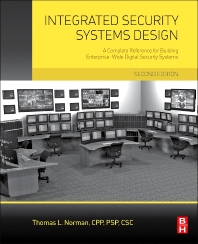Physical guarding is the oldest service in the security business. Starting with night watchmen and advancing to integrated command and control centers, this segment of our industry is quickly converging with technologies that will fundamentally alter how something as physical and human as security is done. The human security guard will never be replaced, but the numbers will be significantly reduced. As in all things business, cost of ownership and efficiency models will win the day.
Some traditional guarding services take advantage of this economic model by convincing local governments that outsourcing guarding services is more cost-effective than hiring or deploying police officers for crowd control and other non- critical functions. Allied Barton Security Services is in this traditional physical security company category. Just visiting one of its trade show booths, you can feel the “old school” tradition. While short-term opportunities may be promising, the outsourcing model cannot scale against new technology. Today, outsourcing guard functions can be done at half the price of a full time police officer, but technology will soon displace the security guard at much better savings. The cost model also displaces security guards.
Sensors and robotics are changing the way our nation does war fighting and offers a glimpse of the future of the security industry. If the 1967 movie “The Graduate” was filmed today, the advice whispered to Dustin Hoffman would not be “plastics” but “sensors.” The wireless robotics controlled by combat soldiers that sense and destroy IEDs (improvised explosive devices) and the aerial drones killing terrorists in Pakistan and operated by pilots sitting outside of Las Vegas are examples of the technologies and personnel representing the future of the security industry.
Personnel will be technically astute, in excellent physical condition, few in numbers, well paid and capable of performing digital forensics and making arrests comparable to local police. Complementing these personal assets will be an array of technology representing the best of digital and thermal video, wireless robotic sensor vehicles, digital fencing with geo-location, biometric access devices with centralized command and control integrating everything together.
Need to have a physical delivery of goods 24/7, wirelessly open the perimeter gate and door, activate the video cameras for verification, and lock up and shut out the lights afterward? All will be remotely controlled with no physical guard required.
Concerned about physical theft of the facility? Deploy robotic vehicles with camera and audio functions integrated to perimeter sensors that alert police or guards to problems that are on the way. The future will be different.
Group4Securicor takes the technology approach. Its recent acquisitions complement its traditional guarding service business. Touchcom automates employee badges, intrusion detection systems and interactive building services. Adesta is a systems integrator specializing in convergence and project management. This is where the industry is heading.
Cisco Systems utilizes automated receptionist technology at their headquarters. The receptionist is in Dallas, Texas and greeting you in San Jose, Calif. How long will physical security guards be in lobbies? We have campus security at universities but not guards in every building. Do we really need emergency communication stations in an era of cell phones? My point is that technology is changing old business models in the security industry.
Comparing the websites of Group 4 Securicor, (www.g4s.com) and Allied Barton Security Services (www.alliedbarton.com) is the tale of two security businesses. Size aside, both companies are successful and provide excellent services today. I believe that integrating new technologies will determine the future of these two firms.







